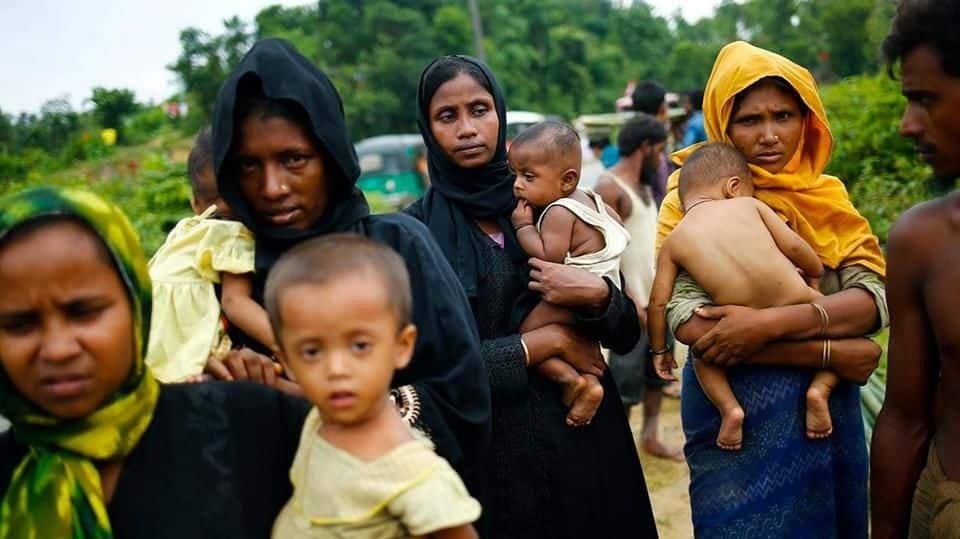
SC defers hearing on Rohingya refugee deportation to Jan 31
What's the story
The Supreme Court has deferred the hearing of a petition filed by two Rohingya Muslim refugees against the Centre's decision to deport all Rohingyas back to Myanmar to January 31.
On October 13, the court ruled that no Rohingya refugee could be deported until the case's next on November 21. This was deferred to December 5.
The Centre considers Rohingyas a national security threat.
Who are Rohingyas?
Rohingyas believed to be world's most persecuted minority
The Rohingyas are an ethnic Muslim group who constitute around one million of Myanmar's predominantly Buddhist 50 million population.
They speak a Bengali dialect, mainly reside in the country's impoverished northern Rakhine state.
Myanmar views them as illegal Bangladeshi immigrants and doesn't officially recognize them as its citizens, rendering them stateless.
The Rohingyas have allegedly been subjected to human rights abuses by Myanmar.
What?
What is the Modi government's stance on Rohingyas?
Union home minister Rajnath Singh had stated that Rohingyas are not refugees but illegal immigrants.
The government contends that many Rohingyas have links with the ISIS and Pakistan's ISI posing a serious threat to India.
It also worries that if they stay, Rohingyas would use up resources meant for Indians leading to social tension and law-and-order problems in the future.
Ruling
Court rejected Centre's jurisdiction to order Rohingya deportation
The SC bench had previously observed that the Rohingya Muslim issue had to be considered from multiple angles such as national security, economic interest, labor interest and the protection of women, children, and innocents.
"We have to strike a balance. It is not an ordinary case," it said.
The court ruled that the authority to deport Rohingyas fell under its jurisdiction, not the Centre.
Criticism
Rohingya crisis: Centre's decision to deport Rohingya widely criticized
According to UN figures, there are at least 16,000 Rohingyas in India; many more are undocumented.
India maintains that it is not a signatory to the UN Refugee Convention (1951) and is, therefore, under no obligation to take Rohingyas in.
India's stance was recently slammed by UN Human Rights Commission.
The Human Rights Watch has also urged India to not turn them back.